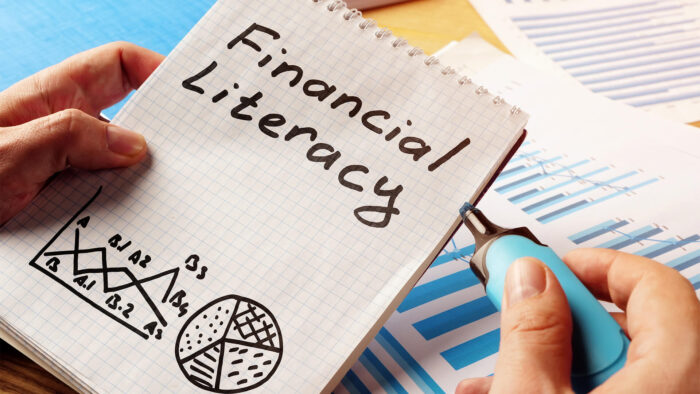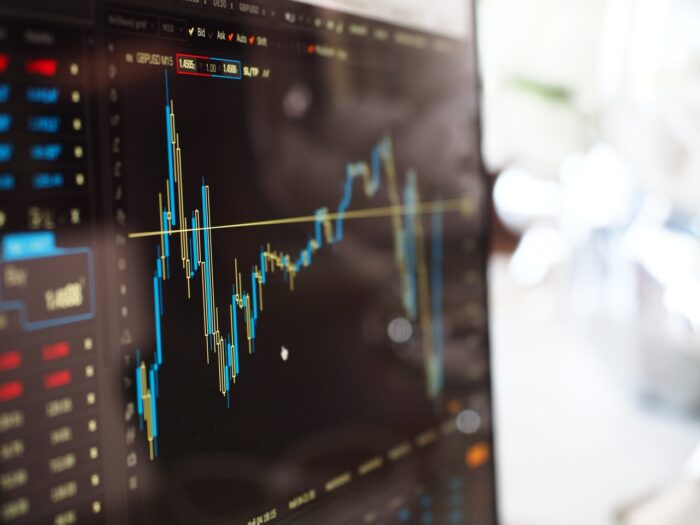
Knowing how money works at a young age gives you confidence and success in your financial decisions later in life. However, it’s never too late to learn anything, including financial stuff.
Investing, saving, and banking are the foundations on which most of our financial choices will be based.
Personal financial management, budgeting, and investing are all examples of financial abilities that are included in financial literacy. It also entails understanding financial principles and ideas including the time worth of money, interest compounding, debt management, and financial planning.
Financial literacy may help people become self-sufficient and financially stable by preventing them from making bad financial choices. Finding out how to set up and follow a budget as well as pay off debt and save for retirement are all important stages in being financially literate. Learn how money works, establish financial goals and achieve them, become aware of unethical/discriminatory financial activities, and manage financial difficulties that life throws at you by educating yourself on these subjects.
Why Is Financial Literacy Important?

The financial literacy of Americans is deteriorating, according to recent trends in the country. Every few years, FINRA’s National Financial Capability Study assesses consumer understanding of interest, compounding, inflation, diversification, and bond prices via a five-question exam. It is also worth noting, that according to Axiory.com, only 34% of individuals who completed the exam successfully answered four out of five questions. Let’s say you’re thinking about your retirement. Employers and governments used to finance their employees’ retirement through pension plans. Pension funds were sponsored by the businesses or governments that paid for them. 401(k) plans, in which employees choose their contribution amounts and investments, are becoming more popular as an alternative to traditional pension plans. Those who do not have access to tax-advantaged savings accounts due to their employees must actively seek them out and establish them.
It should be emphasized that if individuals wish to make money in the financial markets, they must first get a good financial education. It is critical to be financially literate. People cannot be successful in financial markets unless they understand the fundamentals. Basics assist individuals in developing strategies when trading in the marketplace and then putting those strategies into action. For example, when people don’t have a proper education in finances they can’t get a lot about. Moreover, it is also worth noting that increased longevity (leading to later retirement) and Social Security benefits that barely cover basic needs are just a few of the challenges people face today. There are also numerous health and other insurance options, as well as a growing number of savings and investment instruments to choose from, as well as a wide range of financial institutions to choose from. To make well-informed judgments, avoid excessive debt, assist family members with these difficult choices, and have enough money in retirement, financial literacy is essential.
Saving, investing, and managing debt are all aspects of financial literacy that contribute to a feeling of overall financial well-being and self-confidence.
How To Start Investing

To begin investing, you’ll need to understand the fundamentals of where and how to put your money. Understand the dangers associated with various kinds of investments before making an investment decision on where and how much to invest.
The Forex market is the world’s biggest, and the transactions that take place there has an impact on everything from the cost of Chinese-made clothes to the price of a margarita in Mexico.
To put it another way, forex trading is a lot like exchanging money while you’re overseas. Exchange rates vary as a result of traders buying and selling currencies at different times.
The foreign exchange market is a worldwide marketplace operating 24 hours a day, seven days a week, Monday through Friday, where currencies are exchanged.
The forex market is dominated by trades between large institutions like banks, fund managers, and multinational companies. This group of traders isn’t necessarily interested in acquiring the currencies outright; they may just be speculating on or hedging against future exchange rate changes.

In the same way that a stock ticker symbol is allocated a three-letter code, all currencies have been given a code. There are over 170 currencies in the globe, but since the US dollar is used in the overwhelming majority of forex trades, knowing its currency code – USD – is very useful. The euro, which is recognized in 19 nations throughout the European Union, is the second most popular currency on the forex market (code: EUR).
Buying significant amounts of foreign currency in forex trading is similar to purchasing stocks, bonds, or mutual funds. By expecting that the dollar value of that currency rises, you earn a profit rather than by attempting to make a profit on your investment (up or down). When this occurs, you make money by re-exchanging the currency into US dollars again.
When you trade Forex, you’re converting one currency’s value into another. So you’ll constantly be buying one currency and selling the other. As a result, currency trading will always be done in pairs.
Your trading efforts should be built on a solid foundation of research and analysis. If you don’t have them, you’re relying only on instinct. This is almost always a recipe for disaster.

When you initially begin your study, you’ll come across an abundance of Forex resources, which may be confusing. The more you learn about a specific currency pair, the more valuable the information becomes. To stay on top of the market, keep an eye on current and historical charts, keep an eye on the news for economic developments, and check indicators, among other things.
The next step is to read a quotation in order to choose which currency to trade and what position you should take. This quote will help you decide. As long-term investors, we know that there is only one way to predict the market’s future direction: up.
Contrary to stocks, Forex trading is a whole other thing. Because you’re simultaneously purchasing one currency and selling another, you have the ability to speculate on market ups and downs.
Investing in Forex may be thrilling, but it’s a more specialized sector of the financial landscape. Before getting into currencies, new investors should start with less hazardous investments.
Before making a decision, consider your alternatives carefully. Find a brokerage offering paper trading, which operates like a stock market simulation, if you want to test out Forex trading without putting any of your own money at risk. To get started, visit your preferred brokerage once you’ve gotten your feet wet.








